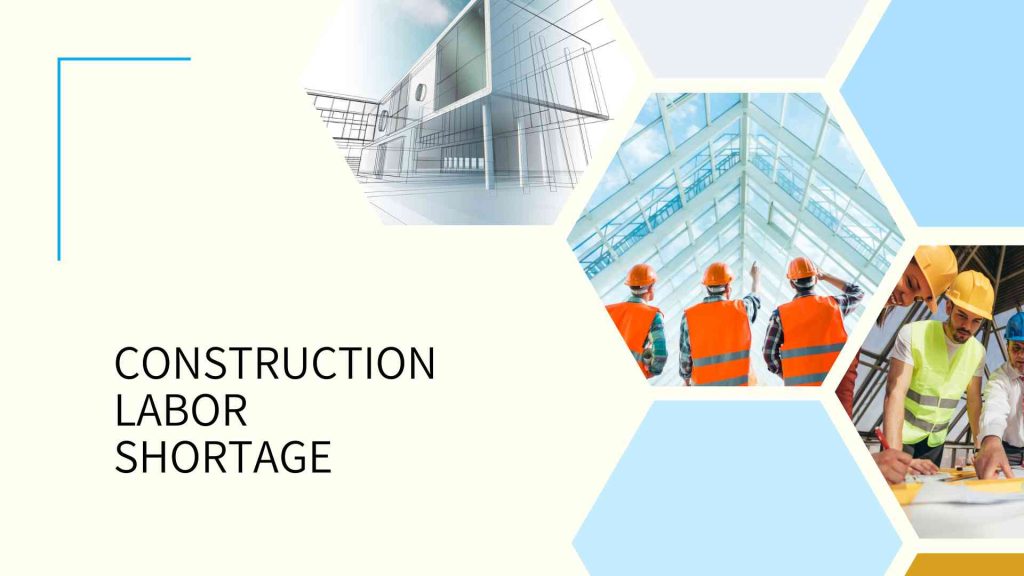The construction industry is the backbone of modern infrastructure and development, shaping the skylines of cities and the structures we rely on daily. However, this vital sector faces a significant challenge – a labor shortage that threatens the timely completion of projects and the industry’s overall growth. To address this issue, construction companies must focus on attracting, retaining, and supporting employees. This article explores strategies and methods to combat the construction labor shortage, ensuring the industry’s robust and sustainable future.
The Construction Labor Shortage Crisis
The construction labor shortage is not a new problem, but its impact has grown more pronounced in recent years. A combination of factors has contributed to this crisis:
- Aging Workforce: A study shows many skilled construction workers are approaching retirement age, and there needs to be more recruits to fill their shoes.
- Lack of New Talent: Younger generations are entering the construction field at a different rate than previous generations, opting for careers in technology, healthcare, and other industries.
- Economic Fluctuations: The construction industry is sensitive to economic downturns, leading to layoffs and discouraging people from pursuing construction careers.
- Skills Gap: As technology advances, the need for workers with up-to-date skills has grown, but training programs still need to catch up.
- Workforce Attrition: High turnover rates in construction due to demanding physical labor, job insecurity, and other factors.
The consequences of this labor shortage are dire. Construction projects face delays, increased costs, and, in some cases, quality issues. Construction companies need a multifaceted approach encompassing recruitment, retention, and employee support to address this challenge.
Attracting Talent
- Marketing the Industry: The construction industry must improve its image to attract new talent. Highlight the opportunities for career growth, competitive wages, and the sense of accomplishment that comes from building something tangible.
- Outreach Programs: Partner with schools, technical colleges, and community organizations to create outreach programs introducing young people to construction. Offer internships to provide hands-on experience.
- Diversity and Inclusion: Promote diversity in the industry by actively recruiting and supporting women and minorities. A diverse workforce can bring new perspectives and ingenious solutions to construction projects.
Retaining Skilled Workers
- Competitive Compensation: Offer competitive wages and benefits to retain skilled workers. Regularly review and adjust compensation packages to match market rates.
- Training and Development: Invest in ongoing training and development programs to upskill your workforce. Encourage workers to acquire new certifications and stay updated with industry trends.
- Work-Life Balance: Promote work-life balance by implementing reasonable work hours and flexible scheduling. A healthier work-life balance can reduce employee burnout and turnover.
Supporting Employees
- Mental and Physical Health: Prioritize the health and well-being of your employees. Supply access to mental fitness resources and promote safety measures to prevent workplace injuries.
- Career Advancement: Create clear career paths within your organization. Employees are more likely to stay when they see opportunities for growth and advancement.
- Employee Feedback: Actively seek feedback from your workforce and make improvements based on their input. Feeling heard and valued can boost morale and job satisfaction.
The construction labor shortage is a critical issue that requires immediate attention from the industry’s stakeholders. By focusing on attracting, retaining, and supporting employees, construction companies can mitigate the labor shortage and create a more resilient and sustainable future.
Embracing diversity, offering competitive compensation, and prioritizing employee well-being are all critical steps toward ensuring that the construction industry continues to build our world. In the face of this challenge, investing in the workforce is not just an option; it’s imperative for the future success of construction projects and the industry.
How Can Acumatica Help?
Acumatica ERP can significantly enhance the construction industry by providing a comprehensive and integrated platform that streamlines project management, financials, and resource planning. This robust system allows construction companies to efficiently manage complex projects, optimize resource allocation, track costs, and maintain real-time visibility into project progress.
With Acumatica ERP, construction firms can make data-driven decisions, reduce manual administrative tasks, enhance collaboration among project teams, and ultimately improve project outcomes by delivering projects on time and within budget while maintaining the flexibility to adapt to changing industry dynamics and customer needs. Contact us for a customized ERP.

Vijay comes with a vast experience in ERP and enterprise solutions space with about 20 years of experience in various packaged application like Acumatica, SAP, Orion, Salesforce.com, SugarCRM and, SalesLogix.

